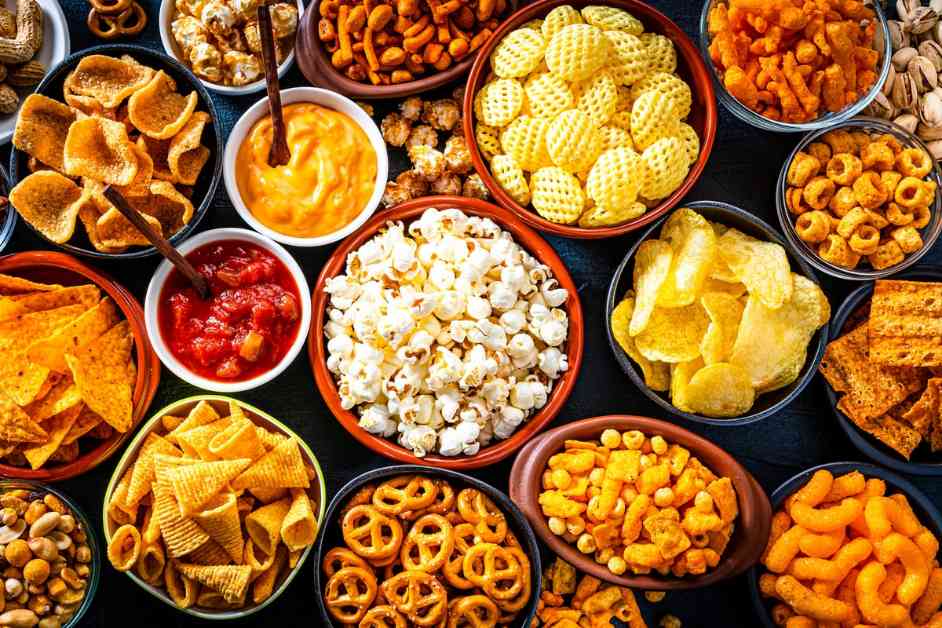Seed Oils in Ultraprocessed Foods Linked to Increased Colon Cancer Risk
Climbing rates of colon and rectal cancer among people under 50 years old is a striking recent trend that has alarmed and puzzled clinicians racing to figure out why. Now a new study published in Gut offers what might be a crucial insight: specific lipids, or fatty acids, that are abundantly found in ultra-processed foods may be promoting inflammation that causes cancerous colon cells to run amok.
Colorectal cancer tumor samples from 81 people in the U.S. had excessive amounts of inflammation-boosting lipids, called omega-6 fatty acids—and lacked helpful lipids called omega-3 fatty acids, which help stop inflammation. Inflammation is a normal defensive response that the immune system switches on to heal wounds or fight off infection. But researchers in the 1800s found that colon tumors under a microscope looked like “poorly healed wounds,” says Timothy Yeatman, a co-author of the study and a professor of surgery at the University of South Florida. Rampant inflammation over long periods of time damages cells and hampers their ability to fight potentially cancerous cell growth. Omega-6 fatty acids often come from our diet, and Yeatman suspects ultraprocessed food is likely a major source of them.
Many ultraprocessed foods and fast foods are prepared with seed oil—a cheap, common type of vegetable-based cooking oil that is chemically processed from seeds such as canola (rapeseed), corn, grapeseed and sunflower. These oils contain high amounts of omega-6 fatty acids. The study was not able to definitively connect the lipids detected in the colon cancer tumors to any specific food or oil, however.
“I think the study confirms that diet is important but probably one of many factors,” says Andrew Chan, a gastroenterologist at Massachusetts General Hospital and a professor of medicine at Harvard Medical School, who was not involved in the new research. Chan and other researchers note that genetics, exercise, lifestyle and chemical or environmental exposures may influence colon cancer risk, too. Additionally, “there’s a lot of complexity to the food we eat, how it’s converted, how it’s metabolized and how it might eventually lead to tissue changes around things like lipids,” Chan says. “So there are still some pieces that need to be filled in before we can really tell a cohesive story about it.”
Expert Insights on Diet and Colon Cancer
When asked about the past research on the relationship between diet and colon cancer, Andrew Chan highlighted the association of colorectal cancer risk with specific dietary patterns known to be proinflammatory. On the other hand, dietary patterns enriched with healthier oils, such as those in Mediterranean diets, have shown a lower risk of colon cancer. While there have been studies on the potential benefits of fish oils in preventing colorectal cancer, more research is needed to understand the inconsistencies in these findings.
Timothy Yeatman delved into the effects of lipids on inflammation, explaining the role of proresolving lipids in healing wounds and resolving inflammation. Unchecked inflammation can lead to cancer development by altering tissues, impairing cell turnover, and creating an environment conducive to DNA changes and mutations that may lead to cancer.
Unraveling the Impact of Omega-6 Fatty Acids
Yeatman emphasized that the source of these proinflammatory lipids is dietary, pointing to the increase in omega-6 fatty acids from the 1950s due to changes in the Western diet. Ultraprocessed foods containing seed oils like soybean, canola, and sunflower oils are prevalent in the market, making it challenging to avoid these potentially harmful ingredients. While omega-6 fatty acids are essential, excessive consumption, especially from seed oils, may pose health risks, indicating a need to reduce their intake until further research clarifies their safety.
In conclusion, the study sheds light on the potential link between seed oils in ultraprocessed foods and increased colon cancer risk. While more investigations are warranted to fully understand this relationship, being mindful of dietary choices and reducing reliance on seed oils could be a prudent step in mitigating the risk of colorectal cancer.










